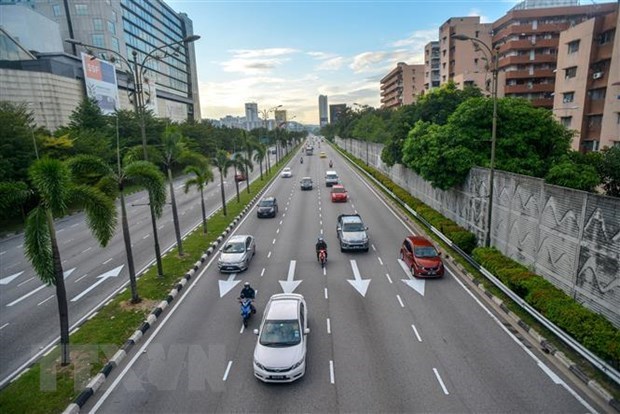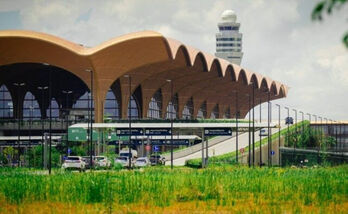
Vehicles move on a road in Kuala Lumpur capital of Malaysia (Photo: Xinhua/VNA)
The Southeast Asian country's economy is seen contracting 1.9 percent in the period of January to March, an improvement on a 3.4 percent contraction recorded in the fourth quarter of last year, according to the median estimate of a Reuters poll of 11 economists.
Malaysia’s economy was propped up by robust growth in the manufacturing sector and sustained oil production, but lockdowns imposed to contain spiking coronavirus cases over the quarter will have hurt consumption, according to Alex Holmes, Asia economist for Capital Economics.
The outlook has deteriorated again in recent weeks, with a rebound in cases leading to the re-imposition of restrictions, Holmes said in a research note.
The risks to Capital Economics’ annual forecast to growth of 6.5 percent are now weighted firmly to the downside, he added.
Shipments surged in March by 31 percent year-on-year, the seventh-straight month of growing demand for Malaysia’s exports.
Malaysia’s central bank expects the economy to rebound this year with growth of between 6 percent to 7.5 percent. GDP shrank 5.6 percent in 2020 - its worst annual performance since the 2008 Asian Financial Crisis.
But this week, the government imposed movement restrictions in capital city Kuala Lumpur and most parts of surrounding Selangor state, Malaysia’s richest region, to deal with a fresh surge in COVID-19 cases.
The “disappointingly slow” pace of the government’s coronavirus vaccine rollout will likely crimp growth, Barclays economist Brian Tan said.
The Malaysian government has set a target to vaccinate 80 percent of Malaysia’s 32 million population in December. Nearly 992,000 people had received at least one vaccine dose as of May 5./.
VNA
 Cambodia officially inaugurates Techo International Airport
Cambodia officially inaugurates Techo International Airport



